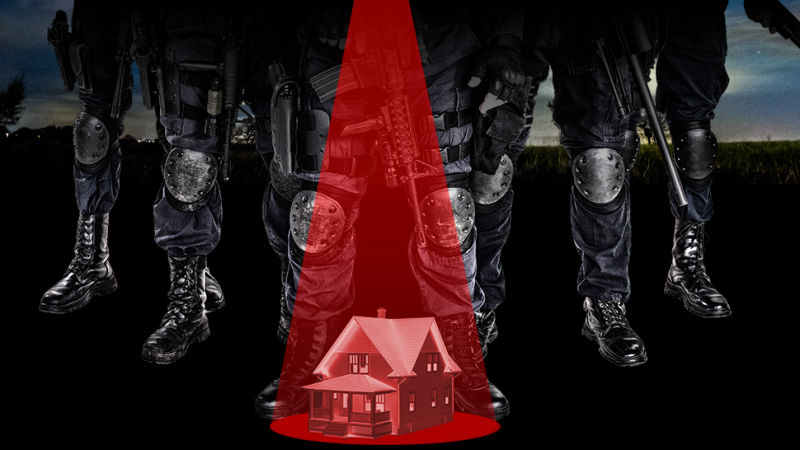Around 10 p.m. on April 14, 2011, two Metro police officers from the North Precinct’s Crime Suppression Unit approached the front door of a brick home just off Buena Vista Pike. They wore raid vests, according to court documents: “black vests with patches and a [Metro Nashville Police Department] decal badge.” Both were armed, although they never drew their weapons.
The officers would later say that after knocking on the door, they heard feet shuffling and saw some silhouettes going back and forth inside. The resident who answered the door, a then-39-year-old man, later testified that he had been asleep in a back room with his girlfriend when he heard banging on the door and people shouting, “Metro police!”
The officers told the man they were looking into a complaint they’d received about narcotics possibly being sold from the house. The man standing on his front stoop in a T-shirt and shorts probably didn’t know that as many as six more officers were positioned at different spots around the home, creating a perimeter, nor that officers had already gone through his trash and stopped vehicles coming from the residence. Neither tactic turned up any controlled substances, evidence that drugs were being sold from the house or anything else that would have allowed police to obtain a search warrant. So they did what’s known as a knock-and-talk.
Knock-and-talks are a legal police tactic that, in theory, involves just what the name suggests: sending an officer or two to knock on the front door of a home and, with the resident’s permission, ask a few questions. But defense attorneys say police knock-and-talks in Nashville regularly go beyond the scope of what’s envisioned by the court rulings allowing them and that they are used to get around the warrant requirements and protections granted by the U.S. and Tennessee constitutions. Critics also point to knock-and-talks as particularly prevalent in “over-policed” neighborhoods, another way that a small group of citizens can receive outsized attention from police and find themselves pulled into a criminal justice system in which they are outmatched.
In this case, the resident testified that after being repeatedly questioned by officers about why someone would make a drug complaint at his address, he told them his girlfriend would occasionally smoke marijuana on the porch. From there, things escalated: Police eventually entered the house, later testifying that they spotted marijuana seeds on a kitchen table. They detained the two residents, who also had a baby in the home, while they obtained a search warrant. The two were later charged with possession with intent to sell cocaine, marijuana and other controlled substances.
But Criminal Court Judge Cheryl Blackburn would later rule that all evidence seized from the home was inadmissible. The defendant and the involved officers gave different accounts as to whether officers were given permission to enter the house and the general tenor of the interaction. Blackburn ruled that the knock-and-talk was “problematic” given the late hour at which it was conducted and the number of officers involved.
“Additionally,” Blackburn wrote, “as defense counsel pointed out, since the officers at the door were loudly announcing ‘Metro police,’ any occupant would have felt obligated to answer the door, thereby rendering the encounter nonconsensual.”
The law allows for several types of interactions between police and citizens, among them arrests, justified by probable cause, and temporary detention, justified by reasonable suspicion that a person has engaged in criminal activity. A third type of interaction is what’s known as a “consensual encounter.” Knock-and-talks are supposed to fall under that umbrella. In those situations, the police have the same rights as anyone else you might encounter. The same way a Girl Scout or a Jehovah’s Witness can walk up to your home and knock on your front door, so can police officers. And you can tell them you’d rather not talk. A fundamental question, though, is whether the badges and guns fundamentally change the interaction.
Metro Nashville Police Department spokesman Don Aaron tells the Scene that knock-and-talks are conducted throughout the city, typically in response to complaints or tips about possible criminal activity like drug sales. (continue reading at Nashville Scene)
